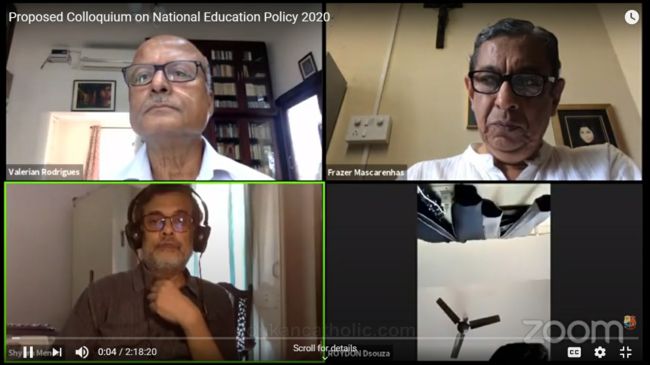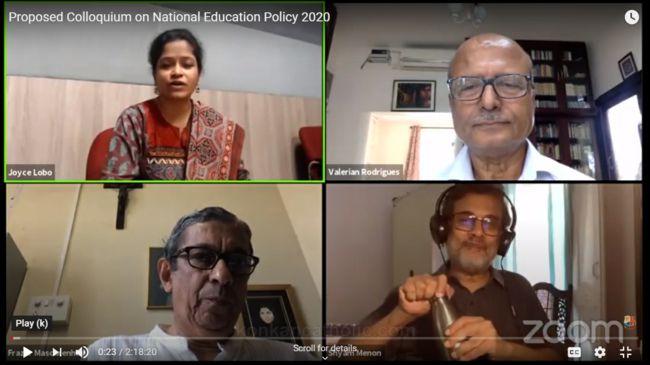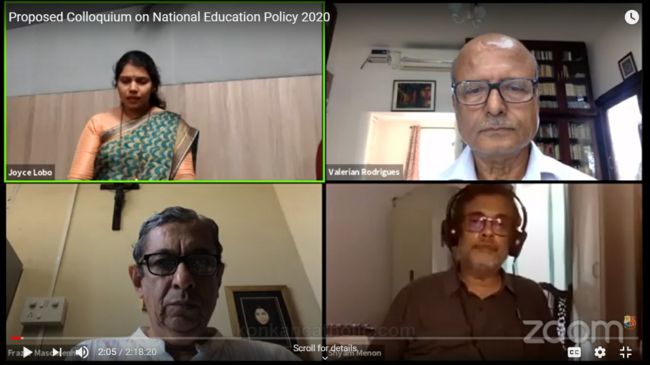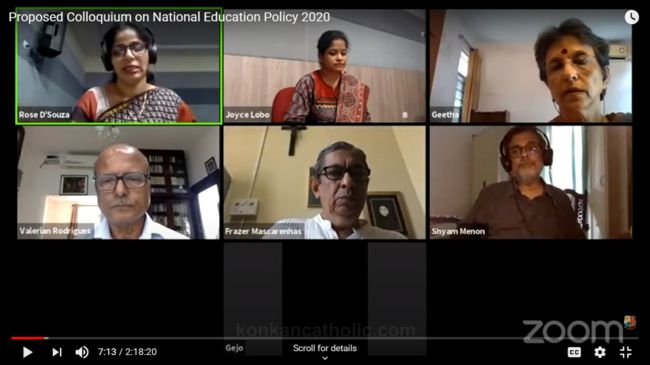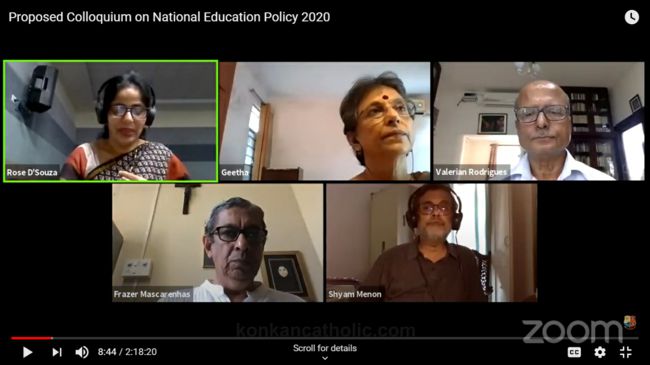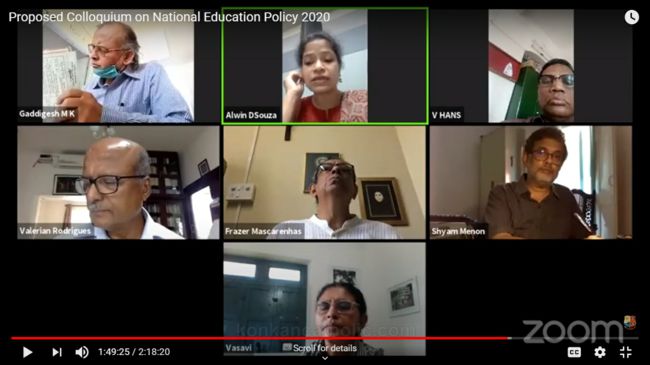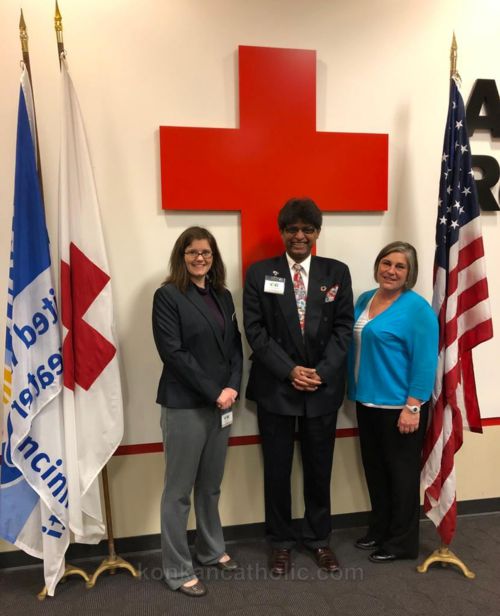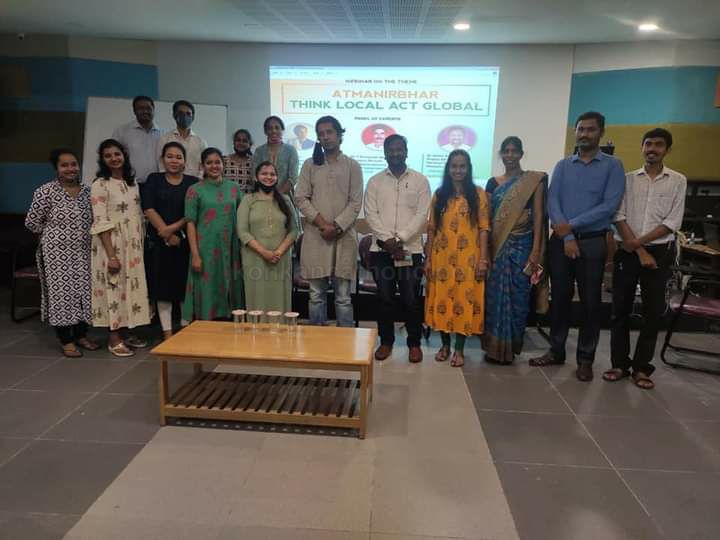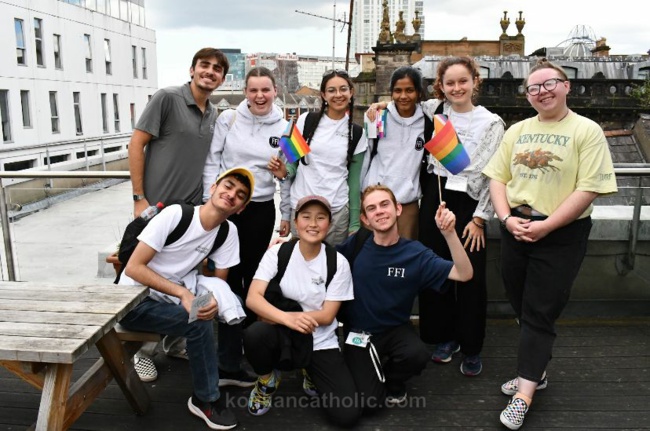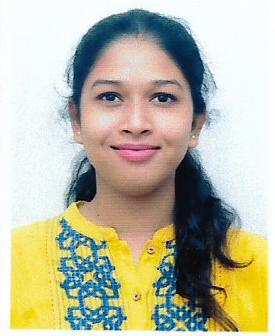St Aloysius discusses National Education Policy 2020
Mangaluru: St. Aloysius College (Autonomous) organized a national colloquium on National Education Policy 2020 under the UGC-Paramarsh Scheme to enable a better coherence of the policy. The colloquium was held on August 26.
The New Education Policy (NEP), 2020, charts one of the most far reaching agenda to restructure educational curriculum across India from early childhood to higher education. Undoubtedly, there is much wanting in the curriculum available to an average student in India today, across the various stages of schooling and higher education.
NEP promises a comprehensive corrective design: recommends reordering school education from the existing 10+2 pattern into 5+3+3+4, to cover 3-18 years old; imparting school education in local languages’ turning Higher Educational Institutions (HEI) into multidisciplinary universities; and use of appropriate technological tools at all levels of education.
The panel discussion focused on the substantive recommendations of the NEP, 2020; omissions, silences and detours that inform NEP, 2020; the prior conceptual and moralistic assumptions replete in NEP, 2020 and their consequences and problems in the execution and implementation of NEP, 2020.The panelists spoke on different angles of NEP 2020.
Professor Valerian Rodrigues (Former professor and Dean of the Faculty of Arts, Mangalore University and former professor at Jawaharlal Nehru University, New Delhi) spoke on the theme “The NEP 2020: A Critical Overview”.
He pointed out to the excellent critique given on the existing school curriculum while the policy rightly stresses on the need to impart education in the mother tongue, on teaching Sanskrit, etc. The policy reflected innovative and imaginative solutions as against rote learning.
Pointing to the negatives, Prof. Rodrigues argued that the document should have been foregrounded on the Preamble of India’s constitution as the leading principled stance. He questioned as to where isthe social capital to carry out the design suggested by NEP? He called NEP 2020 as an Archimedean design wherein there was the lack of political consensus.
Professor Shyam Menon, (Professor at the Central Institute of Education, University of Delhi since 1994 and the Founding Vice Chancellor of the Ambedkar University Delhi, during 2008-2018) addressed on “NEP- Questioning the seriousness of Purpose”.
He said the attempt appeared more of a political project of denying history and producing everything on a blank state. Given the fact that federalism in India was accepted to accommodate diversities, this document attempted to introduce centralization, standardization and uniformity. Rather the ownership of the state is missing through NEP 2020 though education appears constitutionally as a subject within the Concurrent List. The fact that the document deviated from the earlies policies on education laid in the bypassing of the Indian Parliament.
Prof. Geetha B. Nambissan, (former Professor of Sociology of Education at the Zakir Husain Centre for Educational Studies (ZHCES), Jawaharlal Nehru University, New Delhi) spoke on“NEP- Right to Education of Children from the Marginal Groups in relation to Social justice”.
She on the onset stated that a policy of any country is a process. The earlier two policies on education were framed by the nation-state. The current policy has the undertone of globalization and corporatism. She understood that the corporate sector’s provision of education was in the interest of the public and for private profit which was okay. She asserted that the private can be the new public.
However, she cautioned that that the quality of education particularly for the underprivileged groups, including those who send their children to low priced English medium schools where quality is worse than government schools, lacks the true conceptualization of equality of learning in this document. There is a need to draw attention to advocacy and research before implementation.
Dr Frazer Mascarenhas SJ, (Principal of St. Xavier’s College, Mumbai and member of Working Group for Undergraduate Education of the National Knowledge Commission, 2006) spoke exclusively from the context of rights of both linguistic and religious minorities under the topic, “NEP and The Concerns of Minorities”.
Report: Dr. Joyce Sabina Lobo

